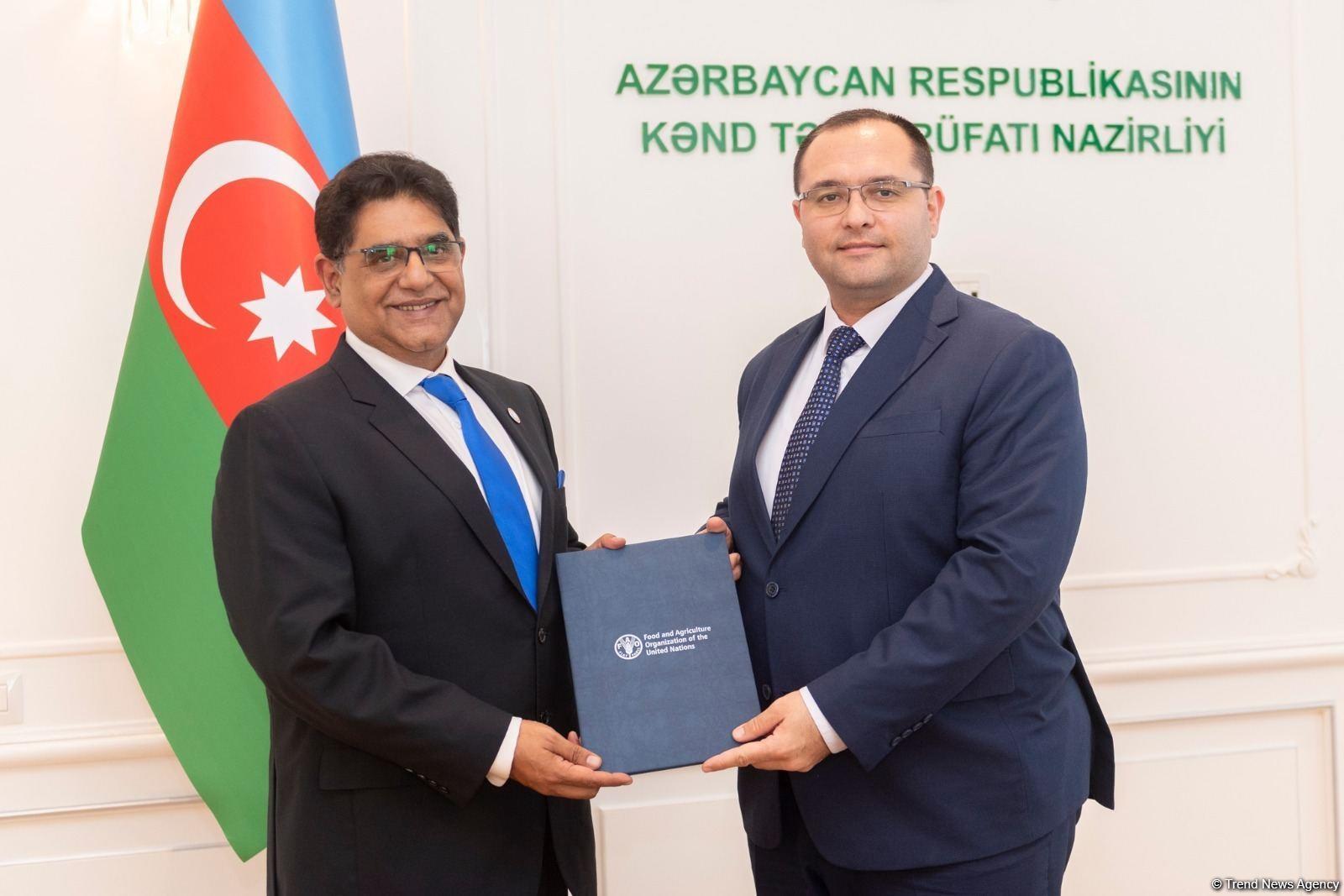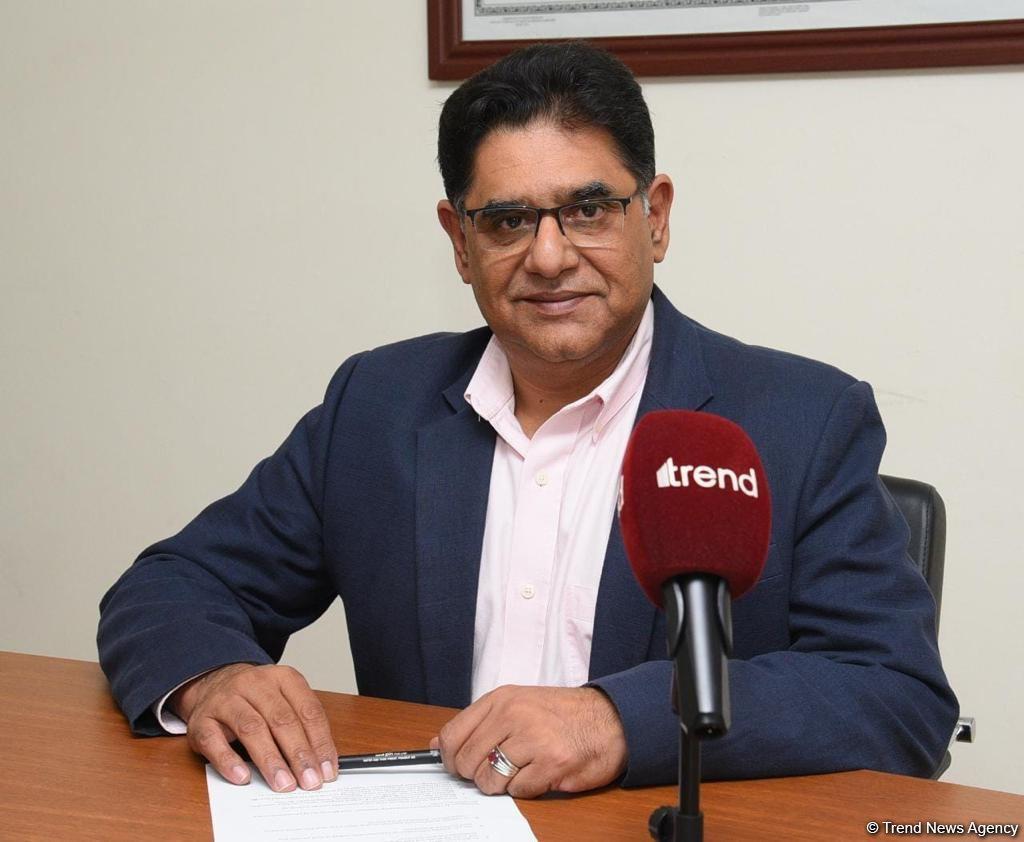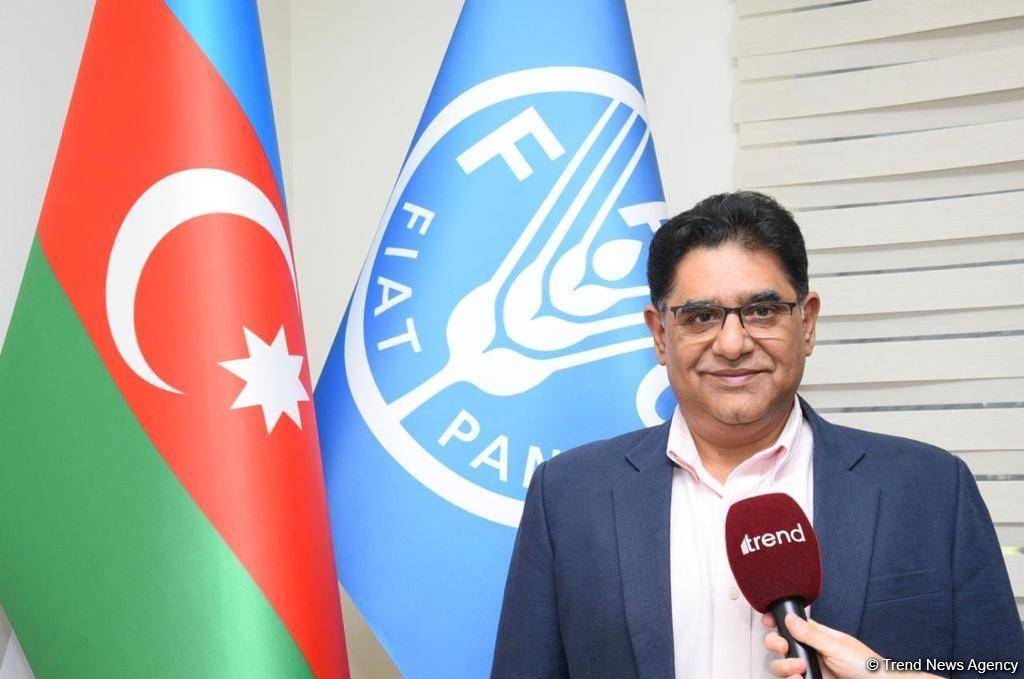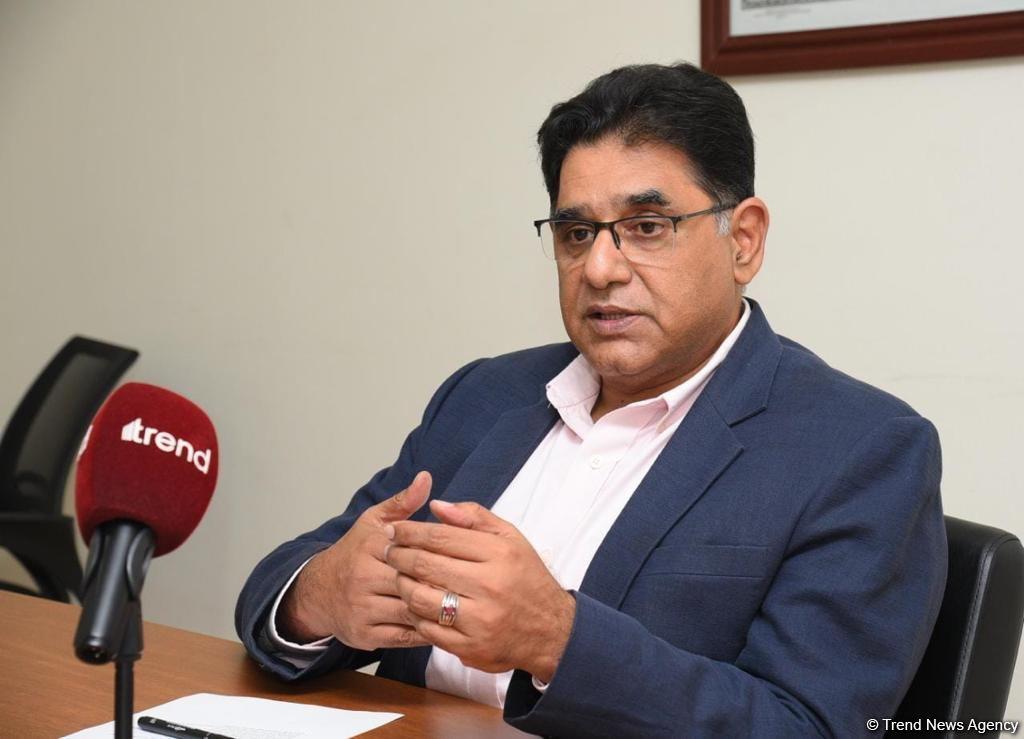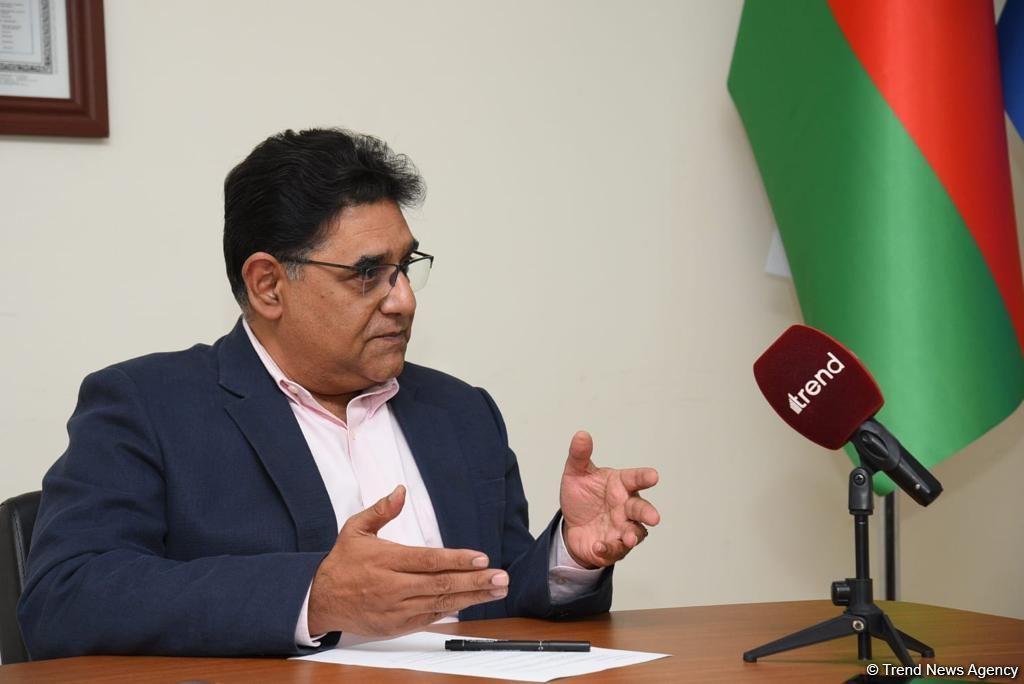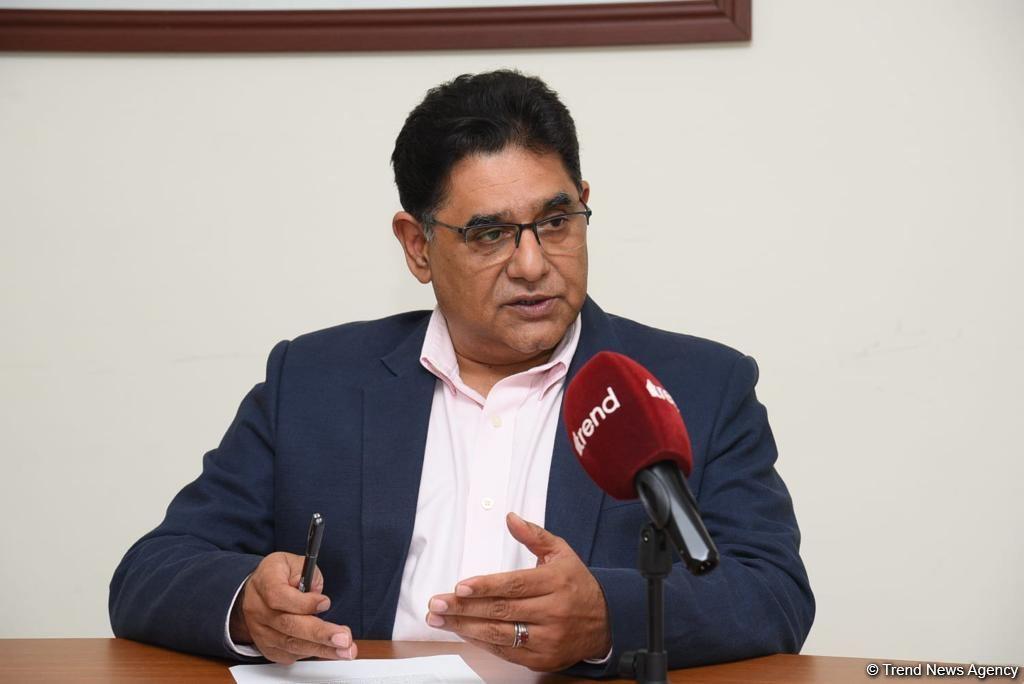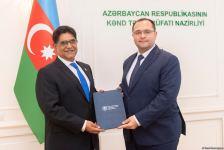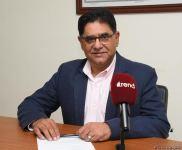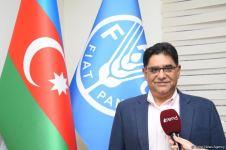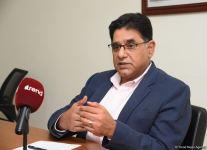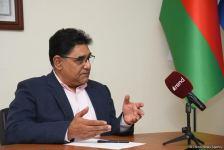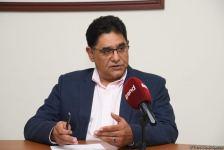(MENAFN- Trend News Agency) BAKU, Azerbaijan, September 5. We are in the
process of finalizing the new phase of the UN Food and Agriculture
Organization (FAO) partnership program in Azerbaijan, Muhammad
Nasar Hayat, FAO representative in Azerbaijan, told Trend in an exclusive
interview.
“FAO and Azerbaijan have established a relationship that goes
back in the early 90s, and, since 2015, we have an office in
Azerbaijan. The cooperation betweenhas been going on very well
since the establishment and signing of a partnership strategy. We
work very closely with the Ministry of agriculture, ecology and
environment, and other stake holders in Azerbaijan. The first phase
of agreement is now over. We are in the process of finalizing the
next phase and the prospects for agriculture sector in this country
are really bright,” he said.
According to Muhammad Nasar Hayat, there is a lot that needs to
be done, and with some improvements, technology, practices in
agriculture, a lot can be improved, not only for people in the
rural areas, but for the country as a hole.
FAO is also ready to support agriculture development in
Azerbaijan's Karabakh, the country representative said.
“We have a lot of experience from other countries in the world
of doing agriculture developments and livelihood restorations in
the post conflict zones. These areas have been going through very
difficult times, and the restoration of agriculture in these areas
is very important. In that context, we are already supporting the
initiative of the Government of Azerbaijan on land reforms, land
allocation, land use planning. Beyond that, we can support the
farmers themselves in restoring agricultural production,” he
noted.
As FAO representative pointed out, some of these areas have not
been cleared of land mines and explosive, so this is another issue
that needs to be resolves.
“And then, we need to figure out what is the best agricultural
model for these areas. There is climate, water availability -
multiple variables are to be looked at, before we decide which way
is the best. We can provide technical expertise, experience in
capacity building, any assistance needed to support the government
in its envisioned strategy,” he explained.
Further speaking, Muhammad Nasar Hayat noted that food security
and environmental protection are some of the key areas of FAO's
work in Azerbaijan, and not only here, but worldwide.
“Globally, we see that there are more people than 800 million
people that experience food insecurity. The level of food pricing
is increasing. In this context, Azerbaijan has to be very careful
and watchful of the situation. Azerbaijan is importing a lot of
food, especially wheat, meat. If the prices are increasing, then
the availability and consumption of these items may be affected.
Azerbaijan is a resource rich country, it has enough to feed its
population. But, still, the food balance, what we produce and what
we consume, still needs improvement. We need to rely less on
imports,” he said.
According to FAO representative, Azerbaijan has really good food
products that can be exported to other countries around the
world.
“Fruits in Azerbaijan are very high quality, and, at large, are
organically produced. These things create a market for specific
Azerbaijani products that we need to take out of the country to
earn more for the farmers that engage in agriculture. We are
supporting the government of Azerbaijan in terms of food safety,
standards, improving productivity, packaging, labeling – everything
that is necessary to access the international market,” he
noted.
Meanwhile, as Muhammad Nasar Hayat rightly noted, for
agricultural production, the second most important thing after land
is water.
“Agriculture has a very unique position within the water
scarcity issues, because, on the one hand, agriculture sector uses
the large bulk of water resources, but, on another hand,
agriculture is responsible for some water pollution and water
wastage. So, in this context, we need to look at what is the best
fit for a specific agricultural production system. And here in
Azerbaijan, my initial understanding is that we need to improve our
water efficiency. And I also see that the Government of Azerbaijan
has taken some really efficient steps. There are subsidies
available for high efficiency irrigation systems, whether it is
using sprinklers, or drip irrigation. There are subsidies available
to adopt these modern technologies. We need to expand the coverage
of these subsidies.
Another area on which we are working in Azerbaijan is improving
the soil health. The soils are degraded in a very serimanner.
Restoring the soil life will contribute for it being more
productive, which includes production systems, which fertilizers we
use, which crops are we growing,” he said.
According to the official, sustainable forest management is
another natural resource that needs to be preserved, as well as
water conservation, water harvesting, in particular, how water can
be harvested, used more effectively. The use of pesticides is
another issue to be focused on, especially, in making sure that
they are not damaging the environment.
“Definitely, food systems cover a lot, besides production, the
FAO's approach is to cover entire food systems which include
activities before the production, which is seeds and soil
preparation and conservation, planting, harvesting, post-harvest
grading, saving food wastage, labeling, transportation, marketing,
food preparation – these are all the areas we need to cover to have
a healthy population
Ensure availability of healthy food for all people for them to be
productive in their lives. So, the future that I see from the
existing agricultural model – transformation to more sustainable
and profitable agriculture sector that can then make contribution
to the national economy, the country's GDP, and also make healthy
and nutritifood available for population at all times. That is
the goal and the stated objective of the Azerbaijani government,
and we are here to support the country in approach,” Muhammad Nasar
Hayat concluded.
